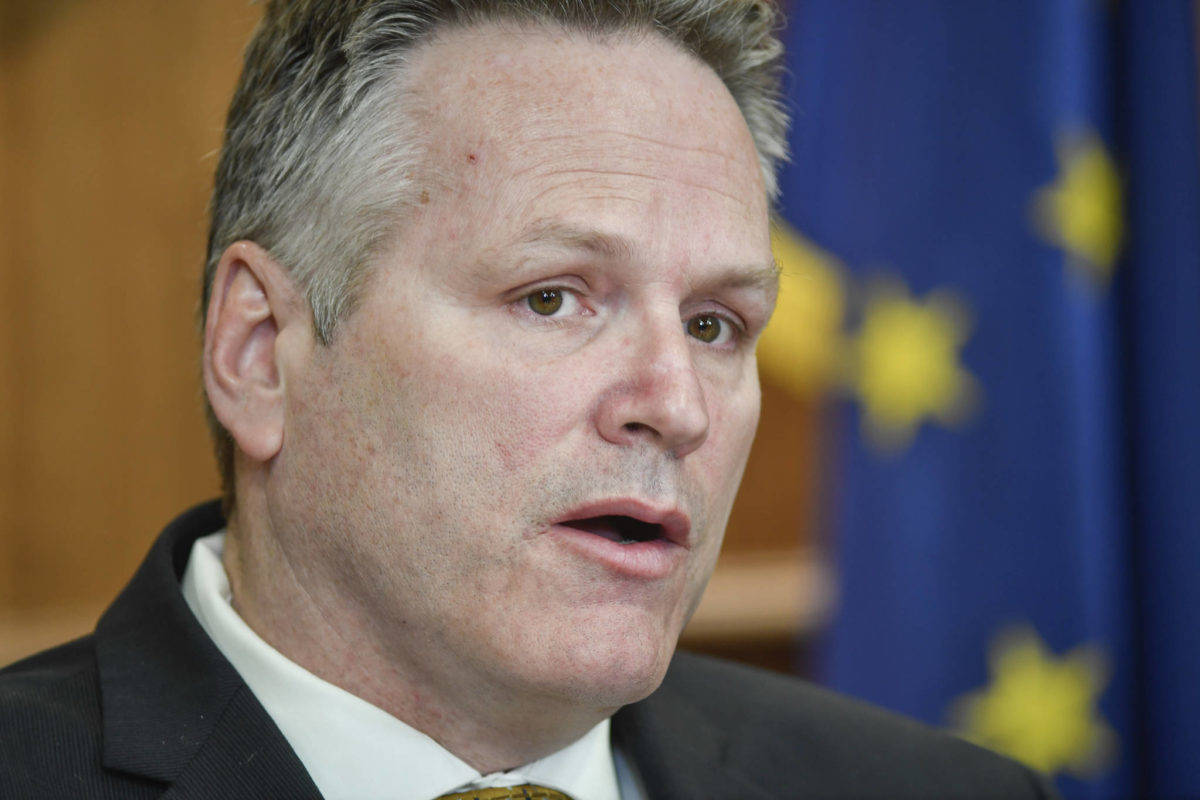Last year Gov. Mike Dunleavy proposed three constitutional amendments. One would make the traditional formula for the Alaska Permanent Fund the supreme law of the land. Another would require voters to approve any tax increase. The third would place a stricter cap on state spending. Each would require approval by two-thirds of each house of the Legislature and a majority of voters.
The Legislature hasn’t acted on any of these. And they shouldn’t.
I’m not arguing that Alaskans don’t deserve to be consulted on these questions. But replacing representative democracy with direct democracy isn’t the answer for solving the state’s budget problems.
First of all, on the PDF and tax issues, voters can’t be trusted to put the public interests their ahead of their own any more than we would trust legislators voting themselves a pay raise.
But the main point I want to make is that most people lack the skills and expertise to understand the complexity involved in government spending. We have the neither the time nor a paid staff to help us make fully informed budget decisions. Instead, we’re more likely to be influenced by overly simplistic arguments that confirm our bias.
This is true even at the local level. Not many people attend Assembly or school board meetings when the education budget is on the agenda. Even fewer read the documents. Instead, public discussion generally focuses on teacher salaries, the amount of spending per student and average class size.
State government is more complicated. Most can’t name the 17 different departments which make up the executive branch or describe the mission of the multiple agencies within each one. Or know why the current appropriation limit has failed to control spending.
Not knowing isn’t a matter of ignorance of apathy. It’s not our job.
However, Dunleavy wants citizens to play a central role in limiting state spending. Without that, he argued during an hourlong appearance on Talk of Alaska, the focus on new revenue from taxes or a reduced PFD is premature.
Dunleavy was invited on the program to discuss his state budget plan and ideas for stabilizing state spending. But instead of describing his detailed approach to the problem, he gave listeners little more than stale talking points.
And as politicians are known to do, he trotted out several misleading statements and a few that weren’t even true.
For instance, Dunleavy implied that the amount of oil flowing down the pipeline resulted in increased state spending every year. And he said after oil prices fell several years ago, “the spending continued, but the revenue fell, and we backfilled that with savings.”
This isn’t the first time the state reduced spending due to lower oil prices. It happened in 1986, 2003 and 2008. And this time around the cuts began before Dunleavy was elected.
The first operating budget Bill Walker proposed was $1.3 billion less when he took office. He also he laid out a sustainable budget vision that included a reduced PFD. And when lawmakers failed to act, he vetoed a portion of the annual appropriation for the PFD in order to minimize the draw from the budget reserve.
Dunleavy twisted the second part of that story by stating “many legislators voted not to follow the law of the PFD” last year. The truth is the state Supreme Court upheld Walker’s veto by ruling that spending from the Permanent Fund is subject to legislative appropriation and the governor’s veto power.
To be fair, a one-hour talk show isn’t a good venue to explain the mission, budget and effectiveness of every state agency. But it’s a lot longer than 30-second campaign ads. And those are coming if the proposed constitutional amendments are put on a ballot.
For elected officials “to gain the people’s trust, we must trust the people,” Dunleavy said last month in defense letting voters determine the fate of the amendments. “It’s the people we serve — we work for them.”
I agree with the sentiment, but not the way in which he applied it. They need to earn our respect by doing the work we elected them to do. And that includes making the difficult decisions on how to pay for the state services that Alaskans across the state expect and deserve.
• Rich Moniak is a Juneau resident and retired civil engineer with more than 25 years of experience working in the public sector. My Turns and Letters to the Editor represent the view of the author, not the view of the Juneau Empire.

